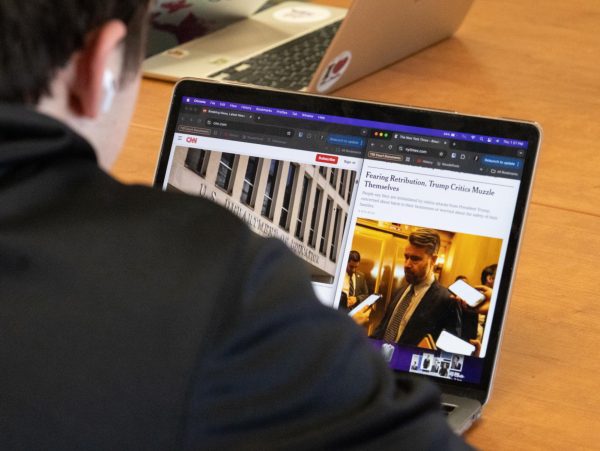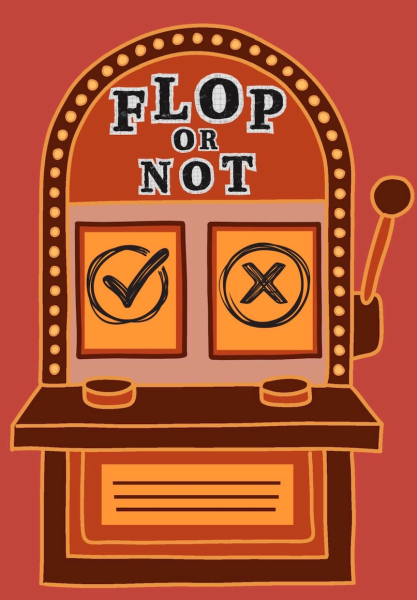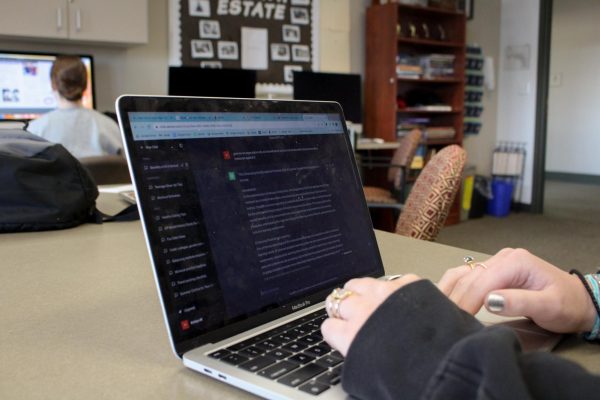It’s more than just words
“Fake news” threatens American democracy, world
Photo: Pixabay
The term “fake news” refers to false, often sensational, news stories written for the purpose of generating ad revenue or discrediting public figures.
“Fake news” does not refer to biased journalism or sloppy reporting, which journalists actively avoid, and it does not refer to simply getting information wrong.
Yet people seem to confuse these terms, applying the term “fake news” inaccurately.
On Jan. 17, President Donald Trump revealed the winners of his 2017 Fake News Awards, awarding prizes to reporters from The New York Times, CNN, ABC News, Newsweek, Time and The Washington Post.
However, these publications do not post fake stories. The New York Times, for instance, and its reporters have received 122 Pulitzer Prize awards – the most well-regarded award in the journalism industry – and the newspaper has 9.8 million readers, according to Statista.
Yet President Trump’s criticisms did not end there.
At a rally in Melbourne, Fla. last February, President Trump called the media “part of the corrupt system” and claimed that they do not want “to report the truth.” Three months later in Louisville, Ky., he again spoke about the media, reiterating his belief in the prevalence of “fake news,” pointing at the press box as he spoke.
Fons Cervera, senior at Kentucky’s Dupont Manual High School, was in the press box at the Louisville rally and received backlash from the crowd after President Trump’s comments.
“I was at the front of the press pen…[and] I remember the people who were there turned around and started yelling at us and gesturing at us,” Cervera said. “Some of them even spit at us.”
Like many journalists at mainstream news organizations, prior to attending the rally, Cervera had never published a false story, although President Trump’s speech may have led attendees to believe he did.
Continued attacks on “fake news” organizations have begun to impact the world.
In November, CNN published a story highlighting the rise of slave auctions in Libya. The story, which launched a formal investigation, gained the attention of President Trump, though not in the way some may have suspected.
“@FoxNews is MUCH more important in the United States than CNN, but outside of the U.S., CNN International is still a major source of (Fake) news, and they represent our Nation to the WORLD very poorly. The outside world does not see the truth from them!”, he tweeted 10 days after the story was published.
To many American news outlets, the tweet may have seemed insignificant, but its biggest effect occurred outside of the United States, where Libya 218, a Libyan-based news organization, questioned the validity of the story as a result.
According to The Guardian, the newspaper “used the tweet to question the credibility of the CNN video, [suggesting] many of CNN’s reports often [arise] out of collusion to serve political objectives.”
By diverting attention from the crime itself, Libya 218 highlighted a dangerous aspect of the “fake news” narrative: that fiction could override truth and that the media will cease to be trusted.
These possibilities are already a reality. A recent poll conducted by POLITICO shows that 46 percent of Americans believe the media makes up stories about President Trump. So maybe President Trump has been partially successful in pushing his “fake news” agenda, but at what cost to American democracy?
Our founding fathers etched freedom of speech and of the press into the very bedrock of American government, inscribing both in the first amendment of our Constitution. As citizens once under rule of the tyrannical king who restricted their ability to speak, not having that right as part of our country’s founding was unthinkable. Yet today, our president is attempting to intimidate the press into silence, publishing dozens of tweets attacking the press and continually berating journalists for any small errors in their stories. The president is meant to uphold our Constitution, not shake its foundation to the core by breaking two of its core pillars.
The press and elected officials do not get along, but it does not permit those in power to diminish reporters’ role in society, an ideal agreed upon by those on both sides of the political spectrum.
During an interview on Meet the Press with Chuck Todd, Senator John McCain of Arizona explained the dangers posed by losing a free press.
“I hate the press, but the fact is we need you. We need a free press. We must have it. It’s vital,” Senator McCain said. “And without it, I am afraid that we would lose so much of our individual liberties over time. That’s how dictators get started.”













Miriam Brown • Dec 3, 2017 at 6:09 PM
Killing it (as always)!! Much love to my newsgryphs